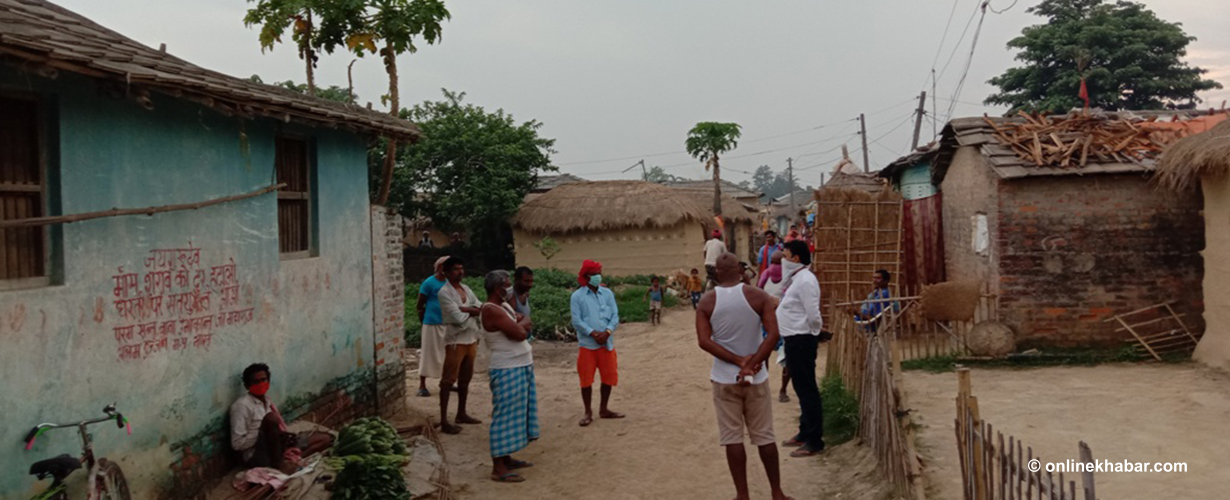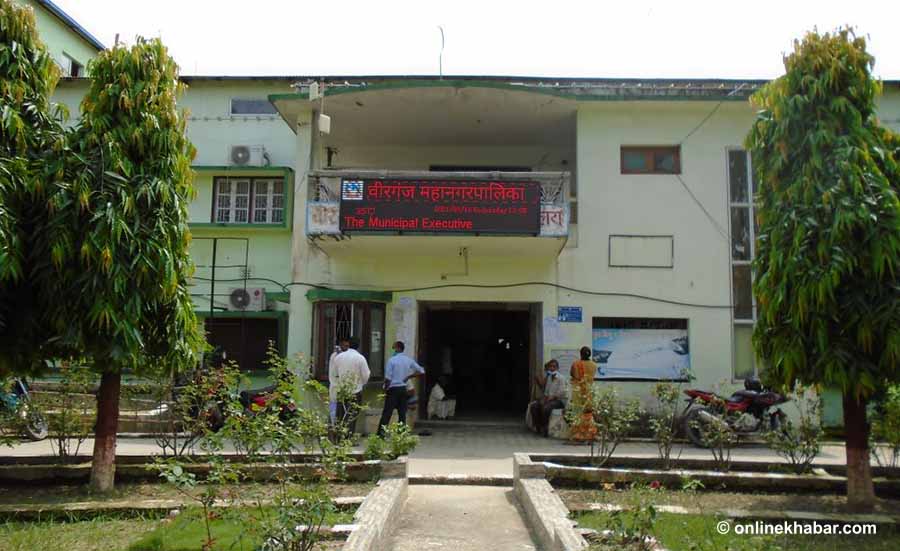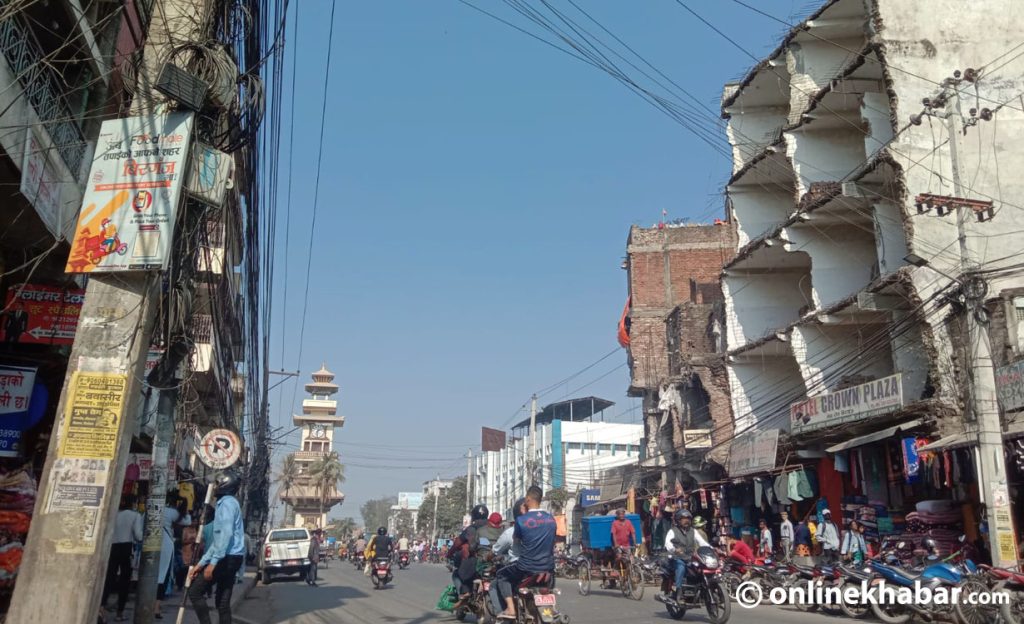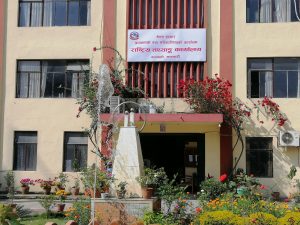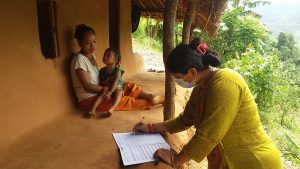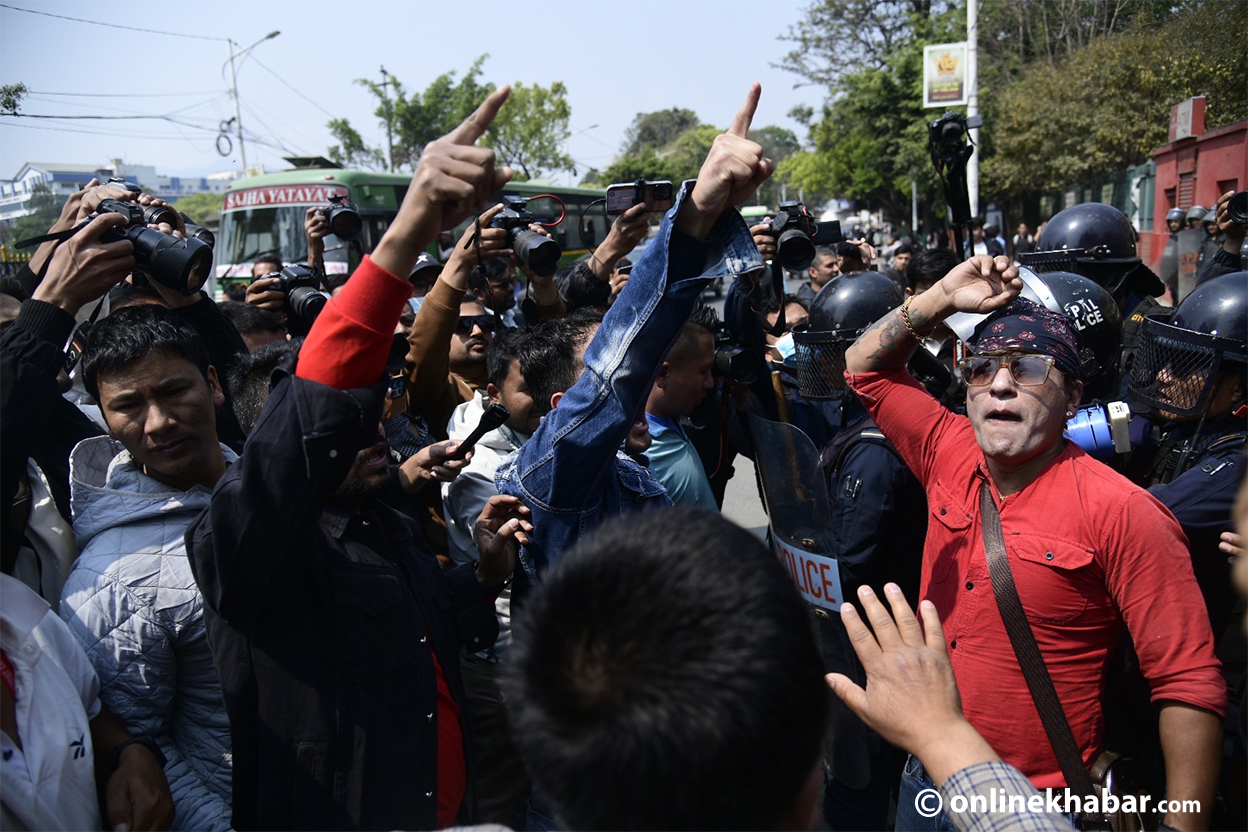On May 10, in Chiljhapti, Jagarnathpur rural municipality-5 of the Parsa district in southern Nepal, scores of people reported they had a fever. The department of health in the rural municipality informed the District Health Office about the development. And soon, the news went public.
In the first 10 days of May, 10 people had died after fever in the rural municipality. The majority of them were from Chiljhapti village. Then, a joint team from the district and municipal bodies arrived at the location to identify the fever patients and conduct antigen tests. They found that seven out of 11 people tested positive for Covid-19. Likewise, swabs of 25 people were sent for PCR testing.
Meanwhile, the team found 167 people had fevers there. Since there was no other disease in the locality, it was confirmed that coronavirus had spread across the village.
The PCR test reports came only on May 13, with that additional 17 were confirmed to have Covid-19. One of them died while he was in home isolation, the same day.
But, not only in Chiljhapti, but there are fever patients also in other villages around. Ram Bishwas Yadav of Jagarnathpur-5 says that the infection has spread all over the village. But, the rural municipality does not have the equipment and human resources required for testing. Neither are there any appropriate isolation facilities, increasing the risk of further spread.
Reluctance to isolate and quarantine

When the news went public, the municipality hastily prepared isolation facilities at a hotel in Birgunj. But, not a single infected person has been kept in isolation there.
Suresh Mahato, a local, says that the locals, even though they are infected, have been roaming in the village regardless.
“A family reported the death of a member because of Covid-19 at his home. Other family members should have undergone PCR tests,” he complains, “Those who tested positive should have been kept in isolation. And those identified in contact tracing should have stayed in quarantine. I heard the municipality had made an isolation centre at a hotel in Birgunj. But, the infected and family members are roaming, from places to places, in the village.”
There has been no contact tracing of anyone who died of Covid-19 or who tested positive and were in home isolation. Yadav further says that the municipality came and distributed the medicine one day but did not carry out contact tracing or testing.
The rural municipality claims it has not been able to form a case investigation and contact tracing (CICT) team.
According to Prabhendra Sah, the head of the health department of the rural municipality, officials claim the virus has not entered the rural municipality. Consequently, the local body is not equipped or ready to fight against Covid-19.
He says that this was because the rural municipality could not procure necessary equipment for testing including antigen kits and VTMs on time. “We got only 50 VTMs from Narayani Hospital, and we are collecting swab samples of those who have come in contact with the infected and showing symptoms,” he says, claiming, “The health condition of those who were infected has improved. The condition of the village is gradually returning to normal.”
Sealing-off and stigmatisation

Banarasi Raut Ahir is suffering from typhoid and undergoing treatment for the past four days. Sitting in a chair outside the house with a cannula fixed into his hand, he claims that there are no longer people suffering from fever in the area. “Everyone with fever is being provided with the medicine, and health workers are checking up on them regularly. Everyone is fine.”
Meanwhile, the people of the village are not able to go to the market freely. Local Ram Jeet Mukhiya shares that he was barred from going to a dental check-up in Pokhariya solely because he was from Chiljhapti. In one village, the villagers went into hiding when they found that a wedding procession included villagers from Chiljhapti.
Meanwhile, the delay in the test results has made the lives of people working for a daily wage and the local farmers difficult.
“The people of Chiljhapti cultivate vegetables and bore tube wells. But after the news of Covid-19 spread in the village, everyone has lost their business and employment, and planted vegetables are rotting,” says another local, Rajesh Prasad Yadav.
He says whenever he goes to other villages to see the vegetables, the neighbouring villagers abuse him and chase him away.
“I don’t have any health problems, yet I am not allowed to go to other villages to sell vegetables,” he says. “Vegetables are rotting in the fields, who will compensate us for that? Either we should be allowed to sell, or someone should buy them.”
Local Rambhu Sah digs tube wells for a living. His work has not stopped even during the prohibitory order. However, he has not been able to go to work because he is from Chiljhapti. Likewise, Laxman Mistri used to reach Harpur village for manual work. But after the owner scolded him for coming to work despite being from Chiljhapti, he has now stopped going to work.
The locals are demanding that the local government loosen the prohibitory order in Chiljhapti after testing those with symptoms or those who came in contact with the infected.
Ward member Shreelal Prasad Yadav says that there is no problem like in the past in Chiljhapti. “On April 27, there were 100 people with cannulas on their hands, taking typhoid medicine. Now, the situation is normal. Not a single person with confirmed infection is in the hospital.”
He adds, “Villagers sell vegetables worth Rs 200,000 to 400,000 daily. But, they are hated while visiting other villages, and it must end.”
Local govt’s inefficiency
The rural municipality should have been very active to solve the problems seen in other villages during this epidemic. But, that does not seem to be the case in Jagarnathpur. The rural municipality chair is in Kathmandu for the treatment of his wife.
Chief Administrative Officer Amit Giri was transferred whereas his successor has not arrived. In the absence of both the Chair and the CAO, the rural municipality’s functioning has been affected.
The municipality has distributed the medicine for those infected. But, it has not been able to buy kits for antigen testing. Rural municipality vice-chair Bismillah Khatun claims that it is because the kits are not available in the market.
“The situation is under control, unlike what has been said outside. We will expand the testing area as soon as we get the kits,” says Khatun.



